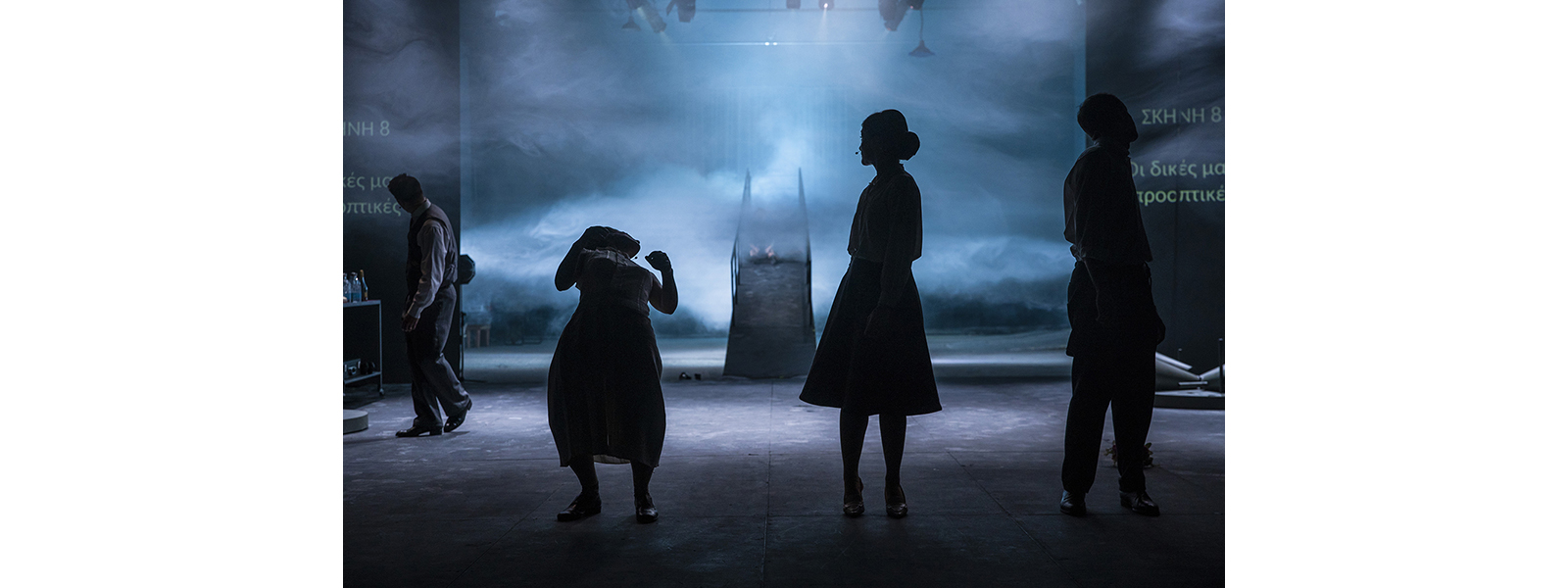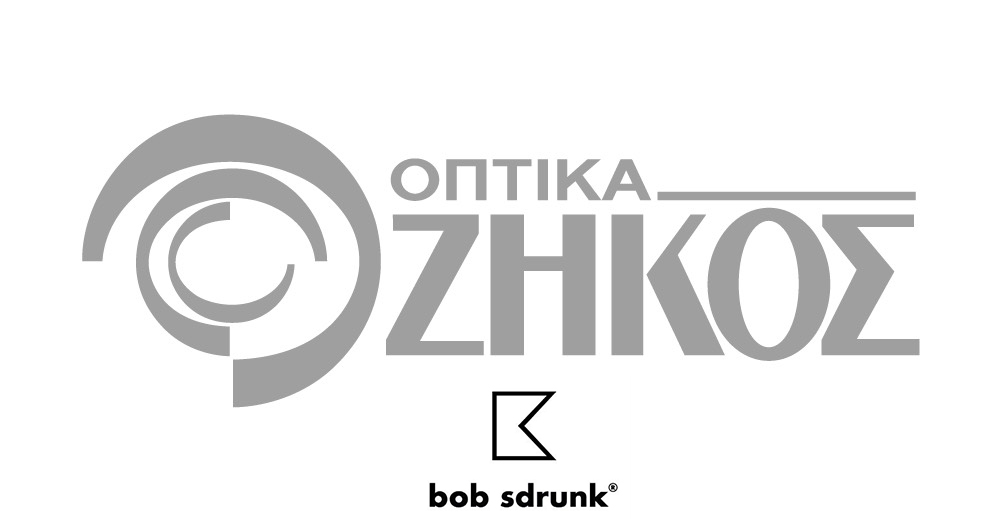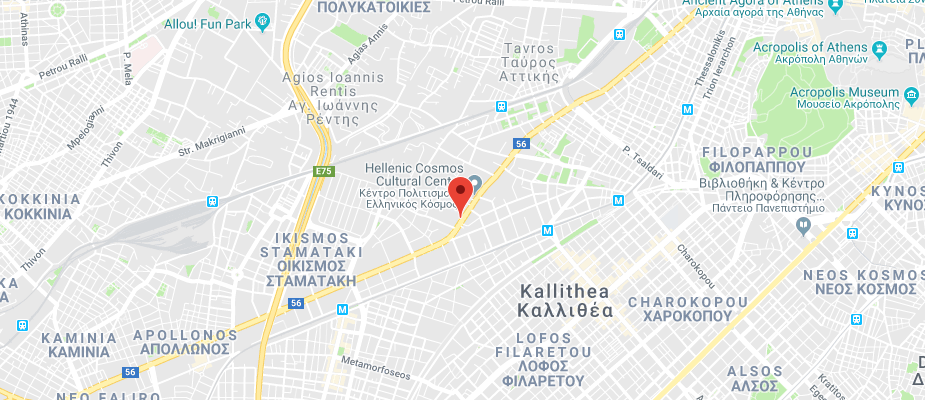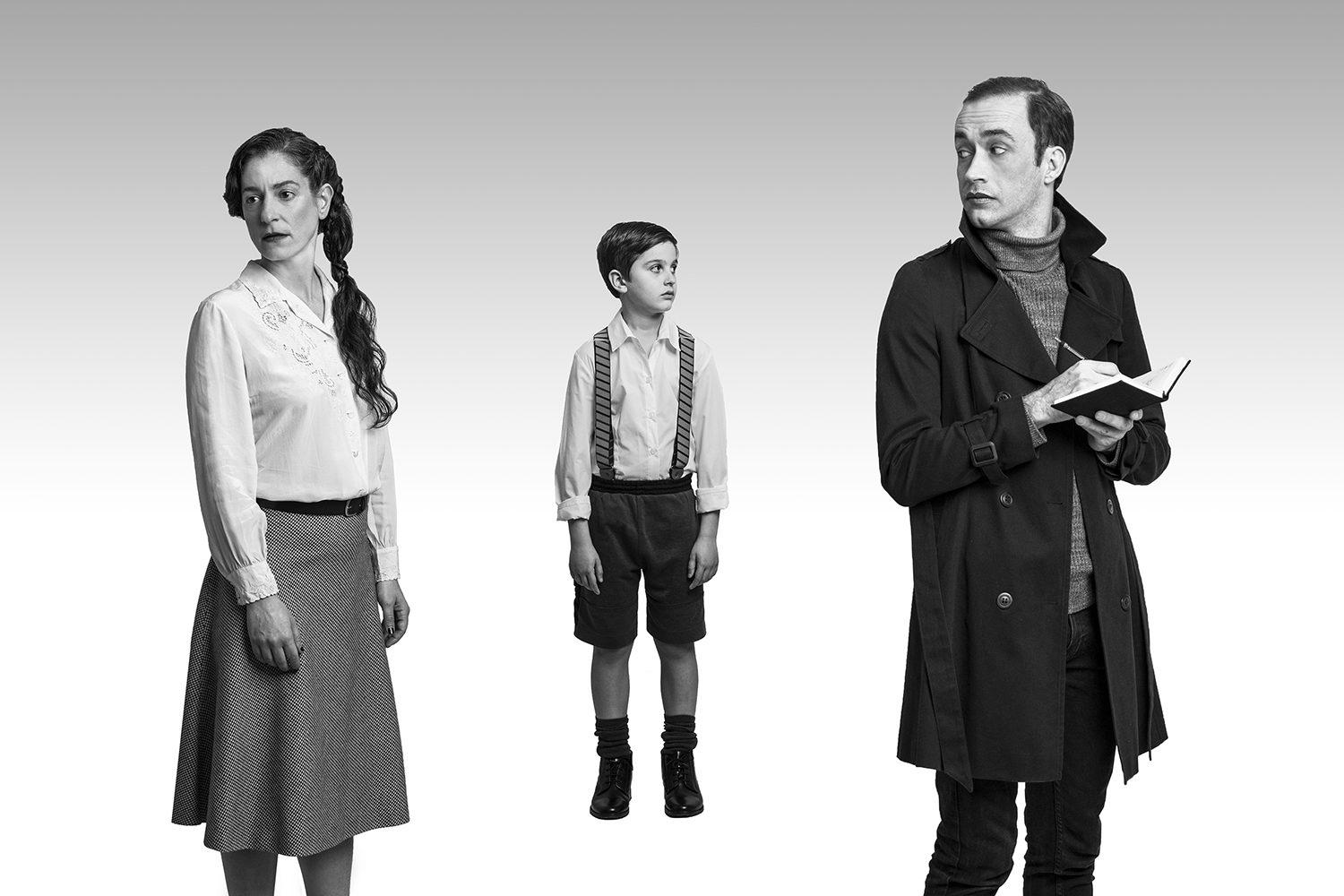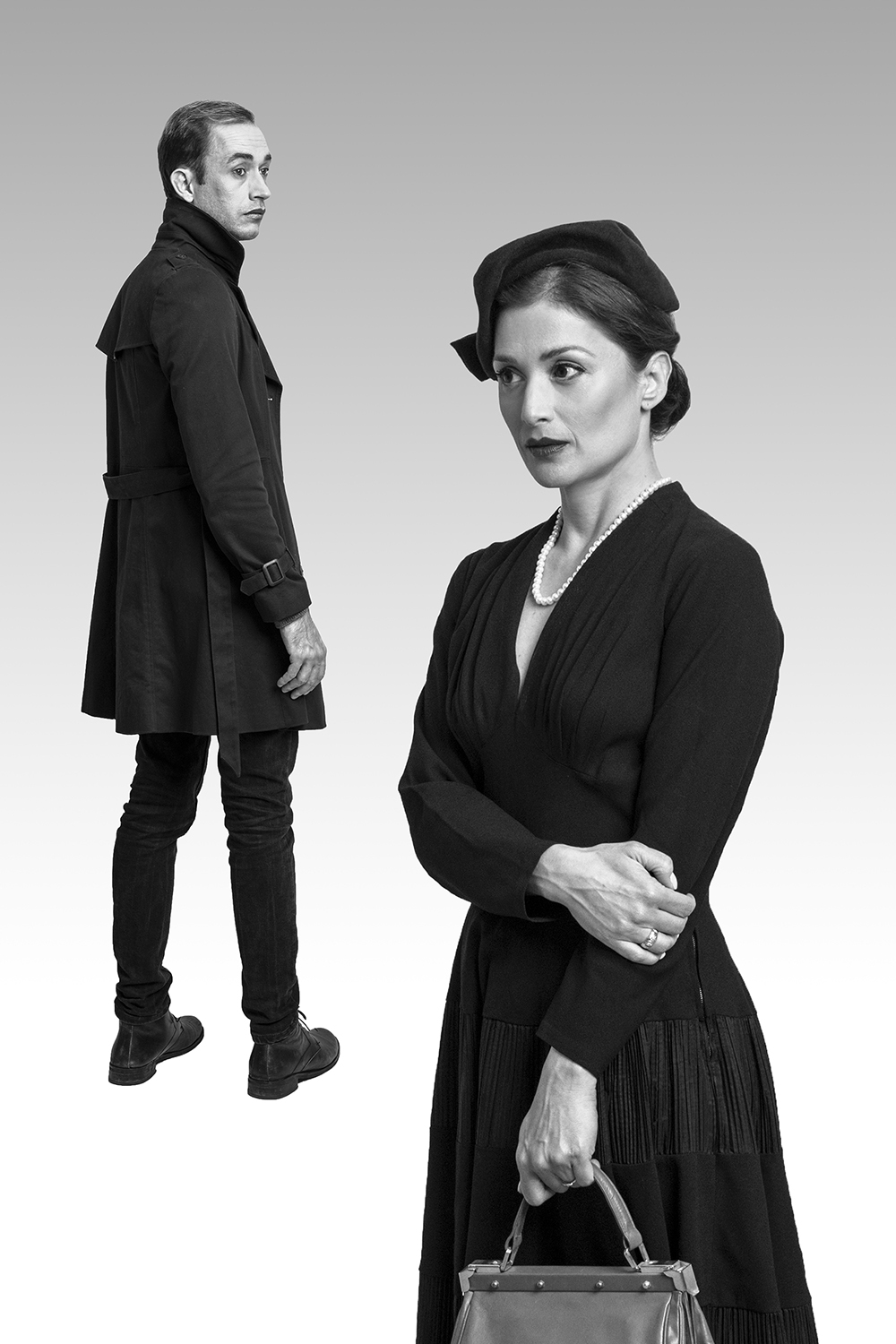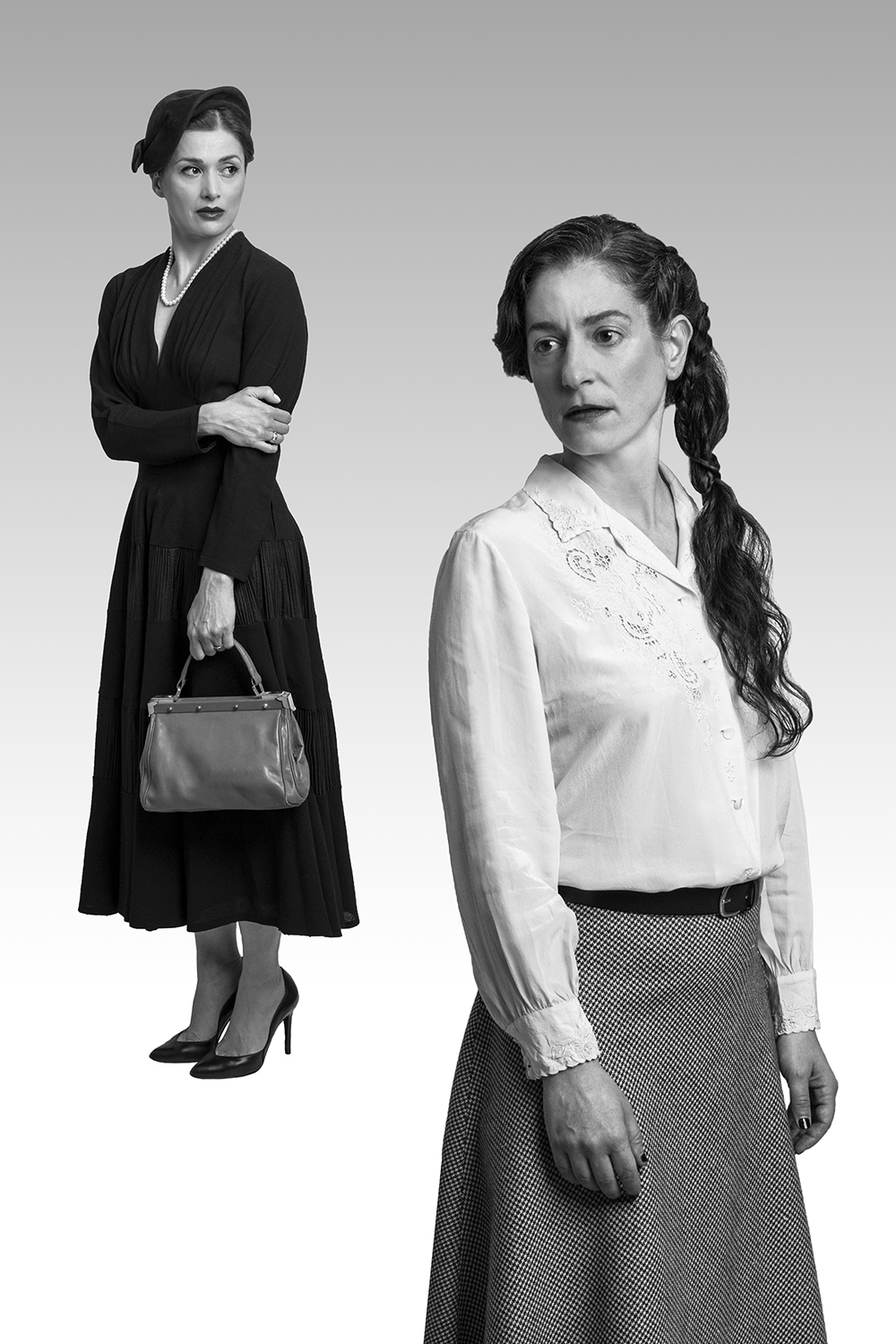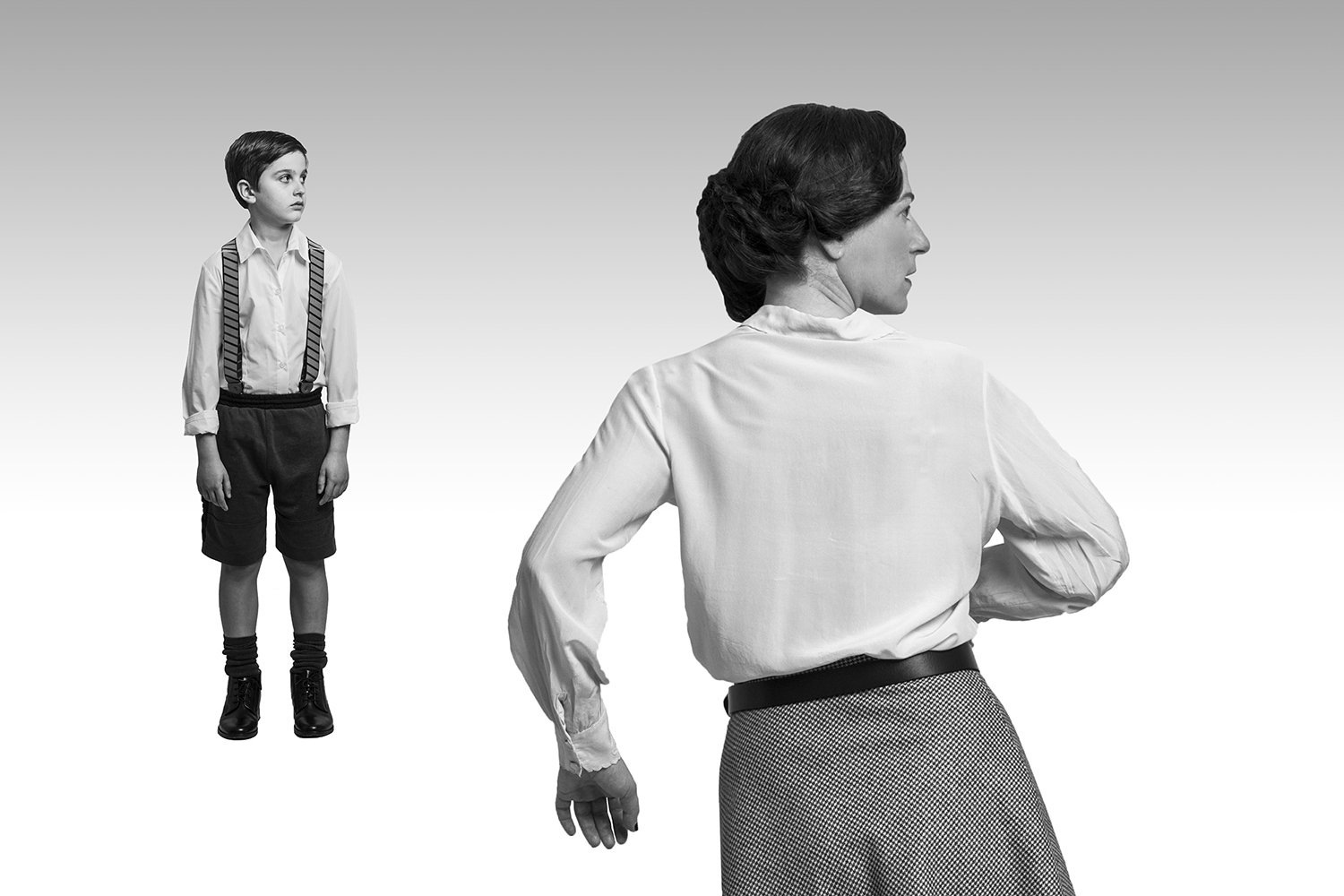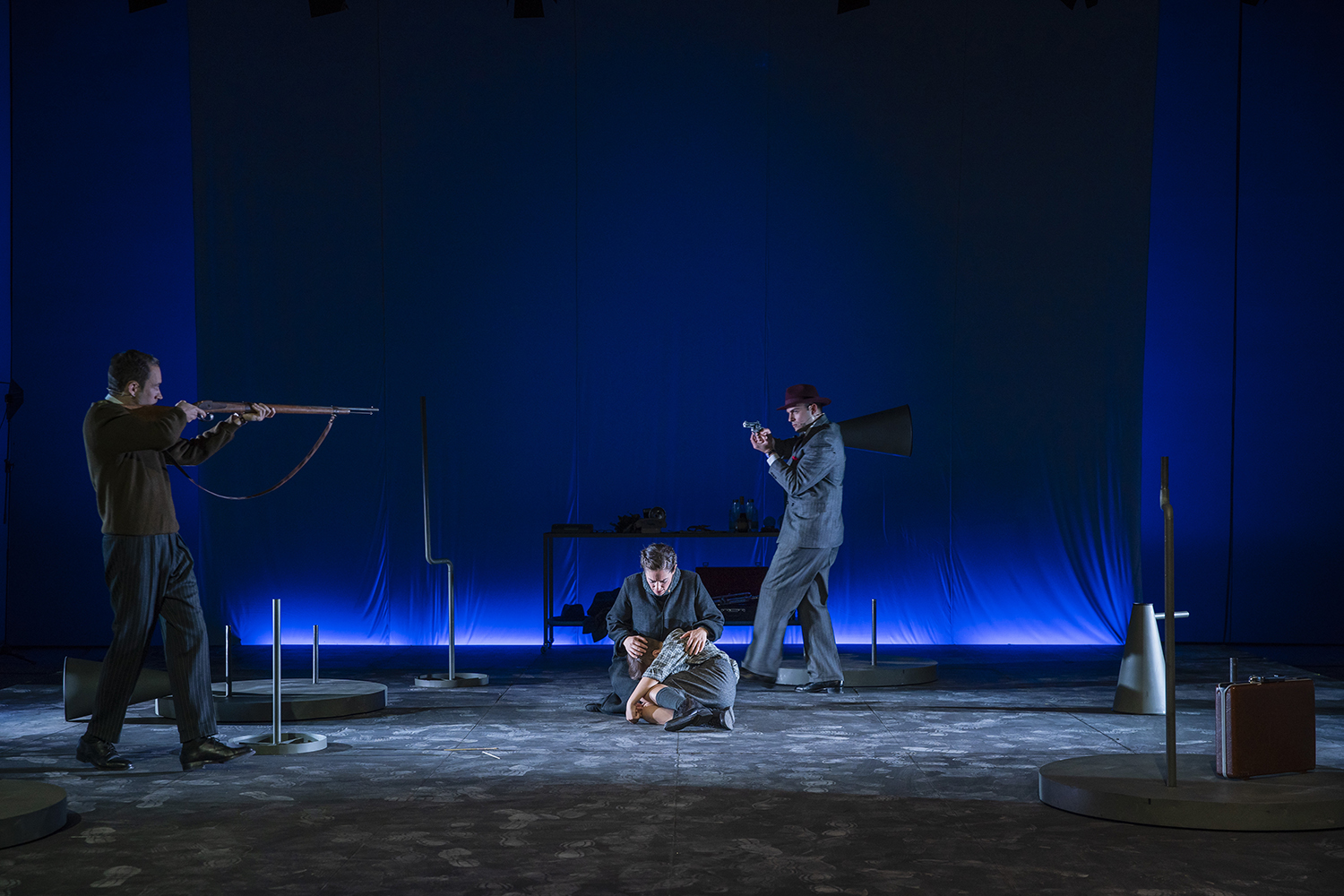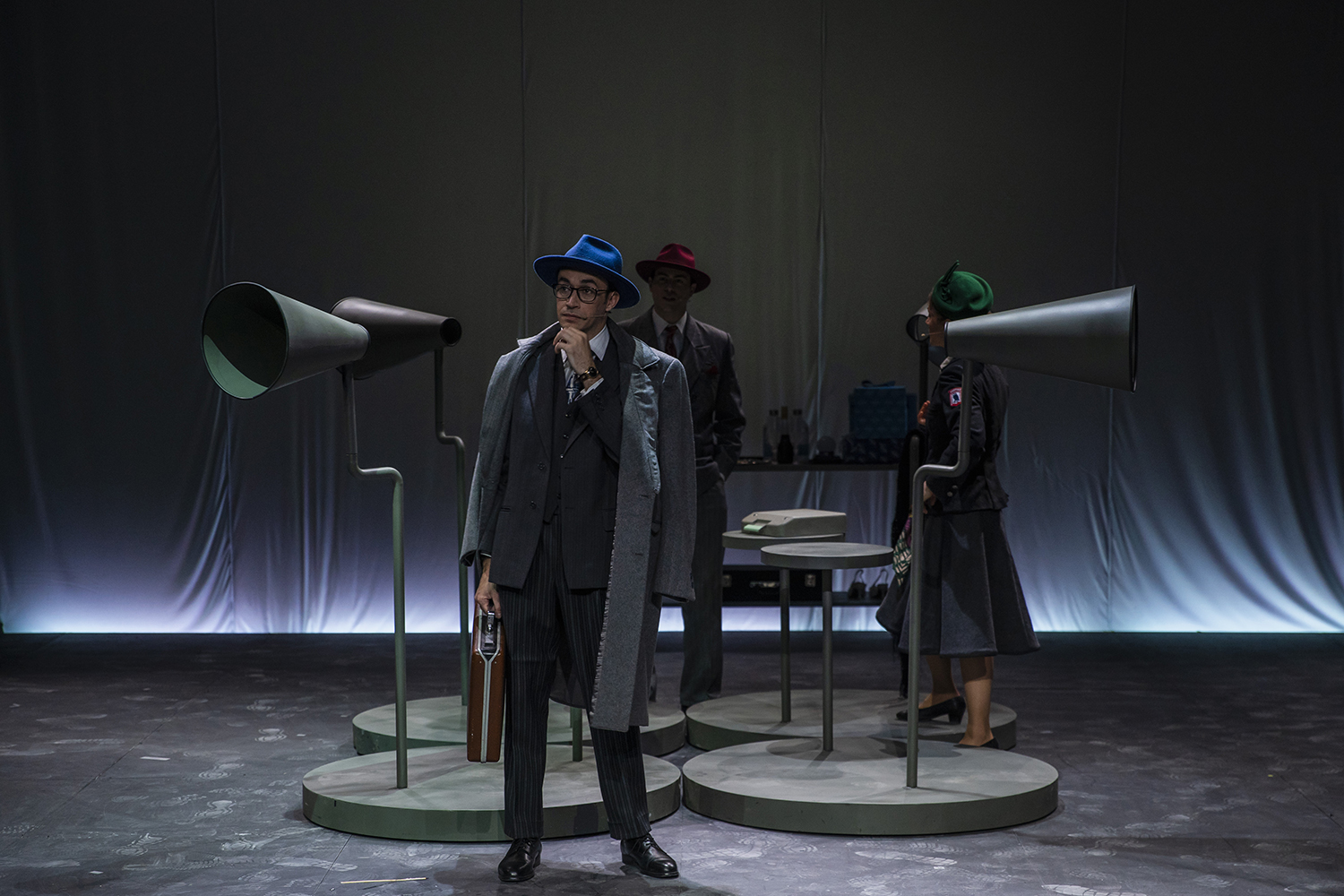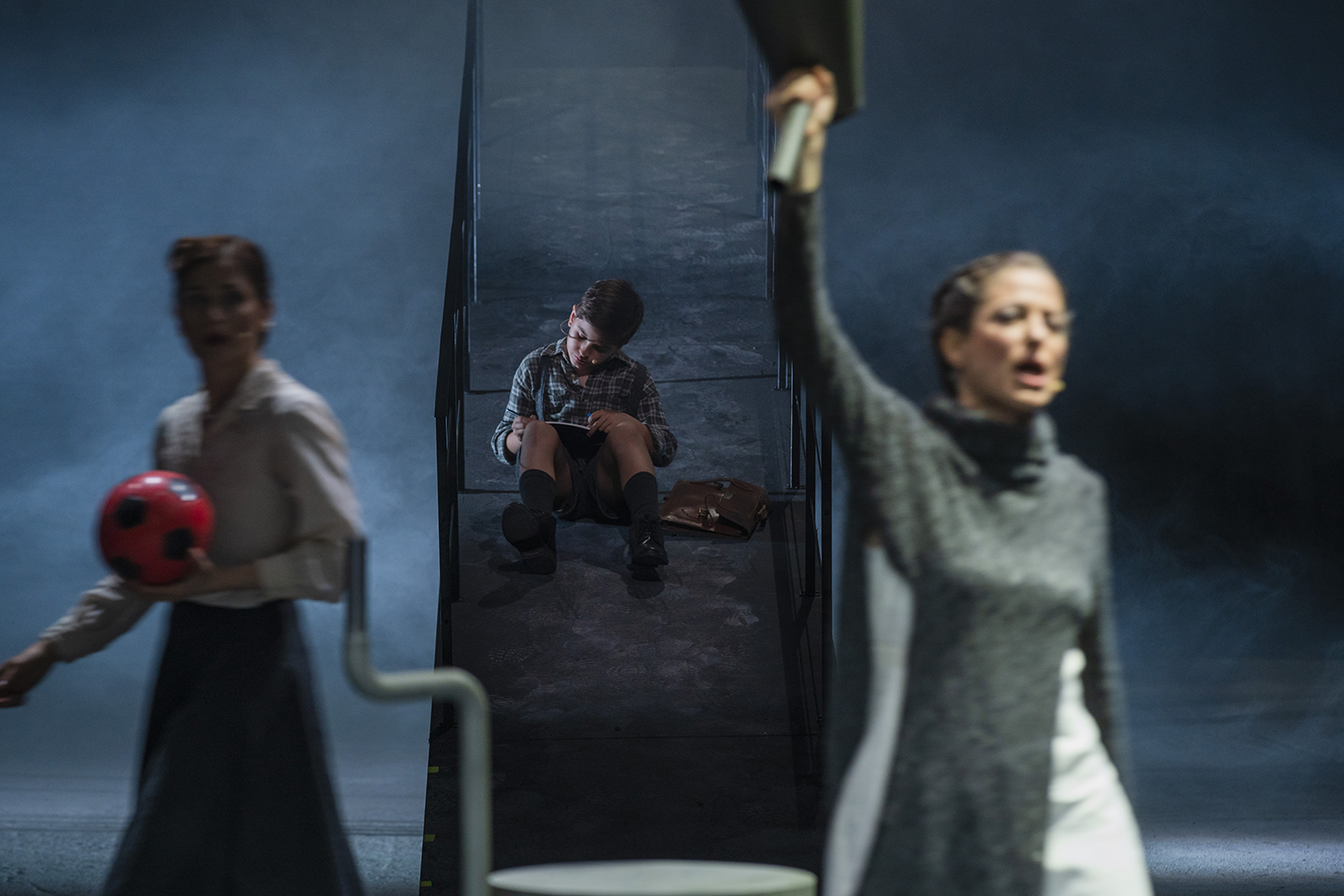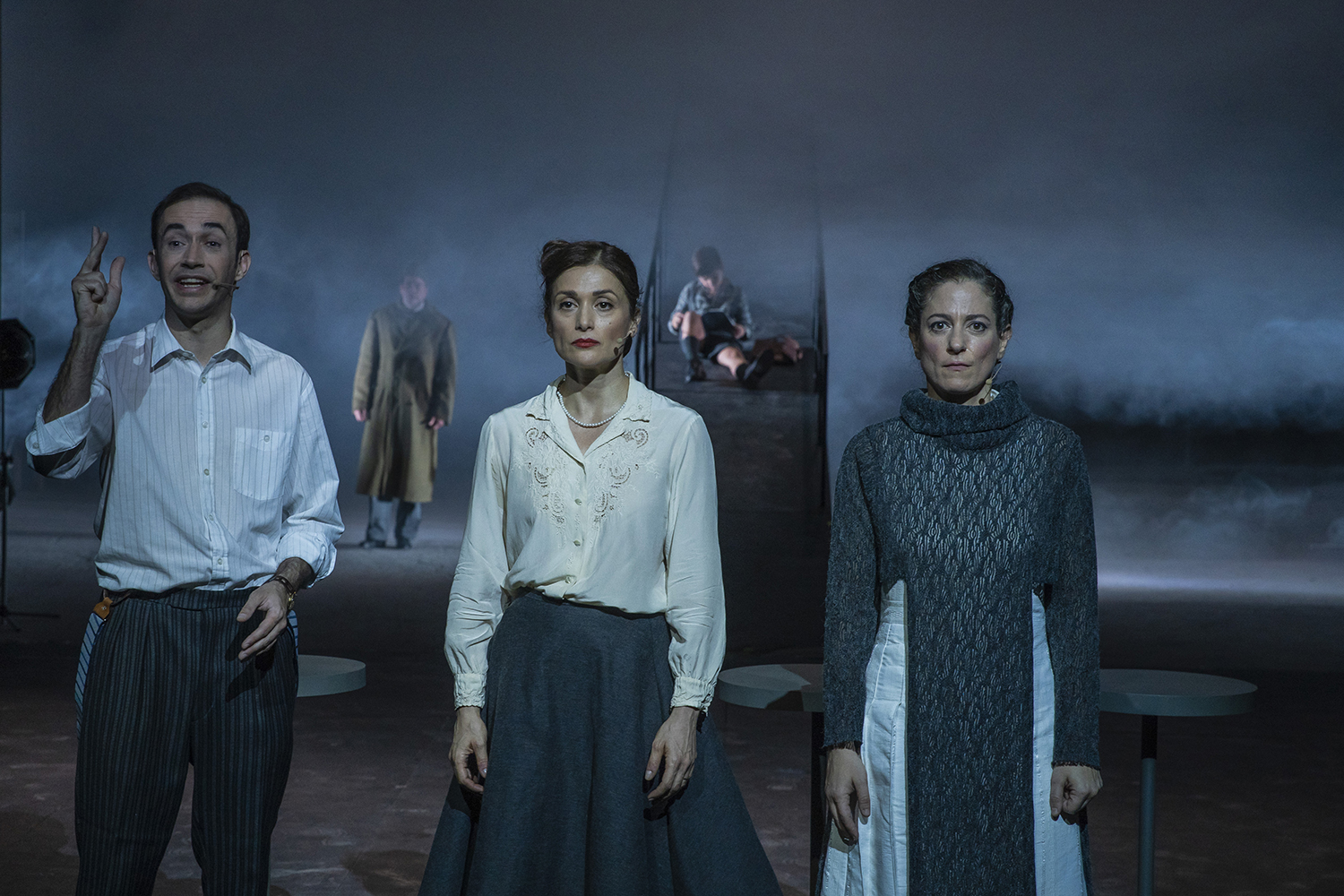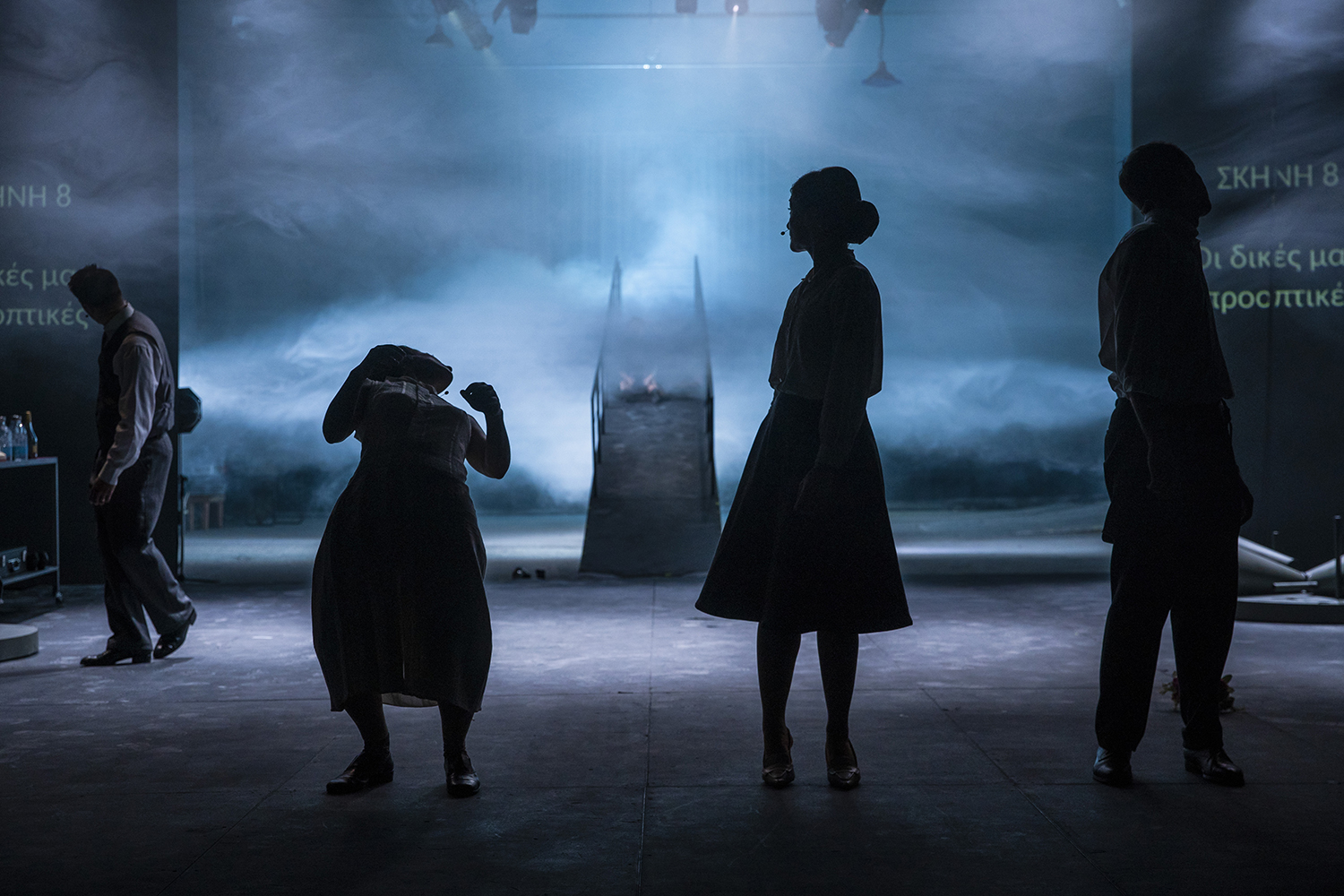The idea of a new beginning amid the ruins of destruction becomes synonymous to expectations for a better life, complete with the insecurity and difficulty which are usually part and parcel of everything new. The Marshall Plan, the rebuilding and recovery initiative aimed at European countries, including Greece, defined US foreign policy after the end of World War II. Was this kind of restarting feasible after all? What is it that emerges from a hopeless osmosis of dissimilar groups and persons? How unexpected can the result be under such circumstances?
In his famous report for Greece published in 1947, Paul Porter, US delegate in Greece, writes that the country was “in the grip of a gray, unrelieved, profound lack of faith in the future”. The transformation, as conceived in the context of the Marshall Plan, took four years to be completed and left behind – apart from infrastructure, agricultural and industrial projects – a taste of modernization as well as a mistrust of foreign aid and its true motives.
Using the delegate’s journal as a springboard, along with the still terribly relevant report he drew up, the performance brings to the forefront that specific era, drawing on Porter’s meetings with Greek workers and farmers, officials, people starving in cities, children and dozens of other real-life individuals. Gradually, the dramaturgy is enriched with scientific studies, historical and economic documents, combined with numerous testimonies, all of which convey the grotesque co-existence of the American ideal and the anarchic Greek spirit, by turns life-saving, dramatic and comical.
In its own way, the visual environment tells the story of how catastrophe turns into creation, how dissolution turns into organization, using music as an integral aspect. The fusion of 1940s rock’n’roll and jazz music with Greek dimotiki (traditional) music encapsulates the tension and admiration as well as the awkwardness and contradictions palpable in the confrontation of these two cultures. Text, visual space, light and music converse with historical phases of post-WWII Greece before, during and after the implementation of the Marshall Plan, investigating its prospects, successes and failures, which continue to affect us today.
Concept – Directing – Lighting Natasha Triantafylli
Performance text assembled by Dimitra Mitropoulou, Natasha Triantafylli
Dramaturgical collaboration Elena Triantafyllopoulou
Set design Eva Manidaki
Costume design Vana Giannoula
Music Μonika
Lighting collaboration Dimitris Koutas
First assistant to the director – Movement Dimitra Mitropoulou
Second assistant to the director Maria Papadouli
Assistant to the set designer Maria Kalofouti
Production manager Manolis Sardis – Pro4
Cast (in alphabetical order) Daphne Alexander, Aris Balis, Nicolas Maraziotis, Dimitra Mitropoulou
Also featuring young Konstantinos Sardis
Video appearance by Christos Loulis
Warmest thanks go to Stathis N. Kalyvas for his assistance and cooperation in developing the themes and texts of the performance, to Konstantina Botsiou, Christos Tsakas and Tasos Sakellaropoulos for their contribution in collecting scientific material and information as well as Giorgos Stathakis, Michalis Psalidopoulos, Eleni Beneki and the Piraeus Bank Group Cultural Foundation, and Maria Sabatakaki for their help.
9 June Post-show talk
Το κείμενο για την παράσταση «Σχέδιο Μάρσαλ – Α Path of Perspectives», υπήρξε αποτέλεσμα πολύμηνης έρευνας και ευρύτατης αναζήτησης ιστορικής, κοινωνιολογικής, επιστημονικής αλλά, παράλληλα, και έντονα καλλιτεχνικής. Ερωτήματα όπως «Πώς αξιοποιούνται οι αρχειακές πηγές στη σκηνική αναπαράσταση» ή «Με ποιον τρόπο μπορεί κάποιος να προσεγγίσει ιστορικά γεγονότα και δράσεις που καθόρισαν τη σύγχρονη πραγματικότητα, έχοντας μια ολοκληρωμένη σκηνική οπτική», υπήρξαν από τους βασικούς άξονες ενδιαφέροντος. Διεκδικώντας το υποκειμενικό βλέμμα του καλλιτέχνη αλλά ταυτόχρονα, με δημιουργική αγωνία για την εγκυρότητα των επιστημονικών πηγών, καταλήξαμε στη μελέτη, σύνθεση και αξιοποίηση στοιχείων μέσα από μια πλούσια και πολυπρισματική βιβλιογραφία, την οποία, ενδεικτικά, παραθέτουμε παρακάτω:
Βερβενιώτη Τασούλα, Οι άμαχοι του ελληνικού Εμφυλίου. Η δυναμική της μνήμης, Κουκκίδα, 2021
Καλύβας Ν. Στάθης, Καταστροφές και θρίαμβοι. Οι 7 κύκλοι της σύγχρονης ελληνικής ιστορίας, Παπαδόπουλος, 2015
Καλύβας Ν. Στάθης, Μαραντζίδης Νίκος, Εμφύλια Πάθη, 23+2 ερωτήσεις για τον Εμφύλιο, Μεταίχμιο, 2016
Κάλφα Κωνσταντίνα, Αυτοστέγαση, τώρα! Η αθέατη πλευρά της αμερικανικής βοήθειας στην Ελλάδα, Futura, 2019
Κωστόπουλος Αλέξανδρος, Γέφυρες συνεργασίας, Σχέδιο Μάρσαλ και Ελλάδα, Ίκαρος 2017
Μπότσιου Κωνσταντίνα, «Ένα σχέδιο διαφορετικό από τα άλλα. Το Σχέδιο Μάρσαλ: Ανασυγκρότηση και μεταρρύθμιση», Αφιέρωμα Σχέδιο Μάρσαλ, Περιοδικό Ιστορία, Πάπυρος, τευχ.531, Σεπτέμβριος 2012
Σαμπατακάκη Μαρία, ΑΣΠΡÓ. Οι αγελαδοτρόφοι του Ασπροπύργου. Αριστερά και Σχέδιο Μάρσαλ, Κέδρος, 2023
Σταθάκης Γιώργος, Το δόγμα Τρούμαν και το Σχέδιο Μάρσαλ, Η ιστορία της αμερικανικής βοήθειας στην Ελλάδα, Βιβλιόραμα, 2004 - Η Ελλάδα στη δεκαετία 1940-1950, Ένα έθνος σε κρίση, Ιστορική Βιβλιοθήκη-Θεμέλιο, 1984 (συλλογικό)
Σφήκας Θανάσης Δ. (επιμ.), Το Σχέδιο Μάρσαλ. Ανασυγκρότηση και διαίρεση της Ευρώπης, Πατάκη, 2011
Τσάκας Χρήστος, Με το βλέμμα στην Ευρώπη. Οι ελληνογερμανικές σχέσεις μετά τον πόλεμο (1953-1981), Πανεπιστημιακές Εκδόσεις Κρήτης, 2023
Χαραλαμπίδης Μενέλαος, Δεκεμβριανά 1944, Η μάχη της Αθήνας, Αλεξάνδρεια, 2014 - «Η Ιστορία των Ελλήνων», Η σύγχρονη Ελλάδα 1944-1974, τόμος 17, Δομή
Judt Tony, Postwar: A history of Europe since 1945, Penguin Press 2005
Judt Tony, Ευρώπη: Μια μεγάλη Χίμαιρα;, Αλεξάνδρεια, 2023
McNeil William H., Η μεταμόρφωση της Ελλάδας μετά τον Β΄ Παγκόσμιο Πόλεμο, Παπαδόπουλος, 2017
Porter Paul A., Ζητείται ένα θαύμα για την Ελλάδα, Μεταμεσονύχτιες εκδόσεις, 2008
Steil Benn, The Marshall Plan: Dawn of the cold war, Hardcover, 2018.
Μελετήθηκαν, επίσης, τα βιβλία:
Κούλογλου Στέλιος, Μαρτυρίες για τον Εμφύλιο και την ελληνική Αριστερά, Εστία, 2006
Ραφαηλίδης Βασίλης, Ιστορία (κωμικοτραγική) του νεοελληνικού κράτους 1830-1974, Εκδόσεις του εικοστού πρώτου, 2001.
Στην παράσταση ακούγονται στίχοι από το ποίημα «Ένα μεγάλο παρελθόν», του Τάσου Λειβαδίτη, από τη συλλογή Ο τυφλός με τον λύχνο, Κέδρος (1983), ένα απόσπασμα από τις «Μέρες του 1945-1951» του Γιώργου Σεφέρη, Ίκαρος (1973), ένα απόσπασμα από το θεατρικό έργο «Λεωφορείο ο Πόθος» του Τέννεση Ουίλλιαμς, από το βιβλίο Λεωφορείο ο Πόθος και έξι μονόπρακτα, μτφρ. Παύλος Μάτεσις, Γκοβόστη (1973) και οι άριες: Song to the Moon (Rusalka) του A. Dvorak και Barcarolle (Τα παραμύθια του Χόφμαν) του J. Offenbach.
Θερμές ευχαριστίες στον Χρήστο Βασιλόπουλο και στην εκπομπή «Η μηχανή του Χρόνου», στον James Phillips, στην Τίνα Κικίλια, στη Δώρα Ζάκκα, στη Μαρία Νεοφυτίδου.

